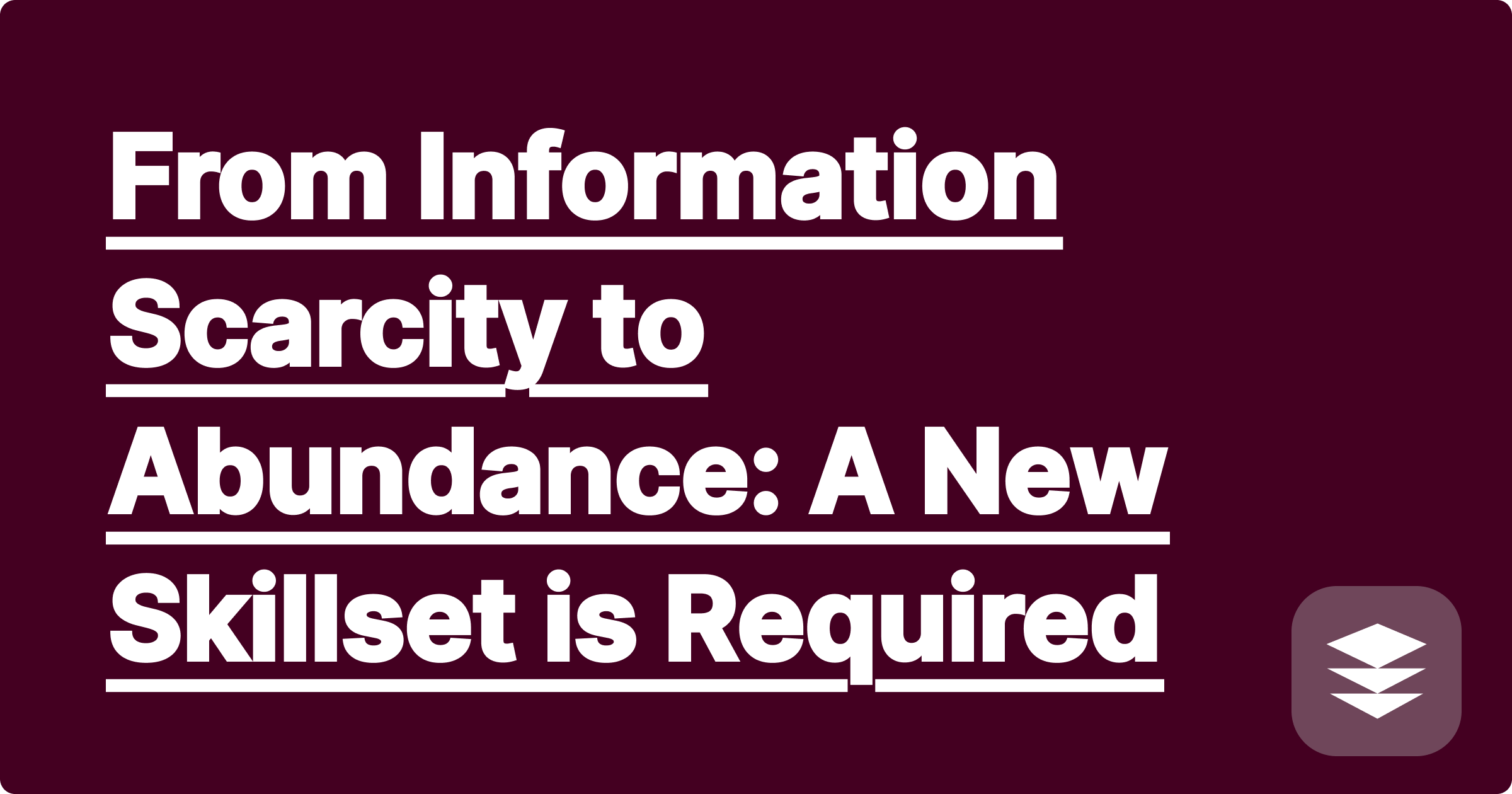
For all of human history until about 15 years ago, the primary challenge of learning was information scarcity. Knowledge was locked away in books and libraries, and the main task was simply getting access to it. Your value as a student or professional was directly tied to the amount of information you had successfully memorized. That entire paradigm has now flipped on its head.
We now live in an age of information abundance. With a few keystrokes, you can access the entirety of human knowledge. The challenge is no longer access; the challenge is a tsunami of information. This has created a new, modern problem: how to deal with information overload. In this new world, a completely new set of skills is required for success.
These are the core skills for the future, and they are precisely the skills that an AI-powered learning suite is designed to help you build.
A tool like GPAI Cheatsheet is the ultimate antidote to information overload. It's an AI-powered filter and synthesizer that helps you manage the digital tsunami.
[Image: An animation of a funnel. Many chaotic, jumbled pieces of information go into the top of the funnel. A single, clean, organized stream of "Key Insights" comes out the bottom, with the GPAI logo on the funnel. Alt-text: A visual explaining how AI helps with information overload by filtering noise.]
Once you have your synthesized cheatsheet, you can use the GPAI Solver to test your new, integrated understanding. You can ask it to generate practice problems based on the synthesized notes, forcing you to apply the knowledge you've just curated. This workflow—Filter, Synthesize, Apply—is the core learning loop for the 21st century.
Learning to use these tools effectively is more important than memorizing any single fact from your classes. You are building the meta-skill of knowledge management. You're learning how to drink from a firehose without drowning. This ability to find, filter, and synthesize information is what will differentiate you in your future career, long after you've forgotten the specific formulas from your physics final.
A: Yes. Your role shifts from being a manual laborer to being an editor and a director. You review the AI's summary and decide if it correctly captured the essence. You prompt the AI to connect different ideas. You are practicing the executive functions of knowledge management, which is a higher-level skill.
A: It can, if used improperly. The goal is not to just glance at the AI's summary. The goal is to use the summary to quickly grasp the big picture, freeing up your time and mental energy to do a "deep dive" on the one or two concepts that are most important or interesting to you.
Stop trying to be a human hard drive. That's a losing game against a machine. Instead, start training to be a powerful human CPU. Embrace the tools that handle the data storage and retrieval, and focus on your uniquely human abilities: critical thinking, creativity, and the synthesis of new ideas.
Is 'Knowing' Obsolete? The Future of Education in the Age of AI
How AI Can Help Us Rediscover the 'Play' in Learning
Your Personal 'Anti-Bias' Assistant: Using AI to Challenge Your Own Assumptions
The Ethics of 'Perfect' Submissions: A Conversation About the 'Humanizer'
Beyond STEM: How an AI Solver Can Help with Philosophy and Logic Proofs
The 'Forgetting Curve' is Now Optional: How AI Creates Your External Memory
Can an AI Have a 'Eureka!' Moment? Exploring a Model's Inner Workings
From Information Scarcity to Abundance: A New Skillset is Required
Just Trust Me, Bro': Why Showing Your Work (with AI) Builds Credibility